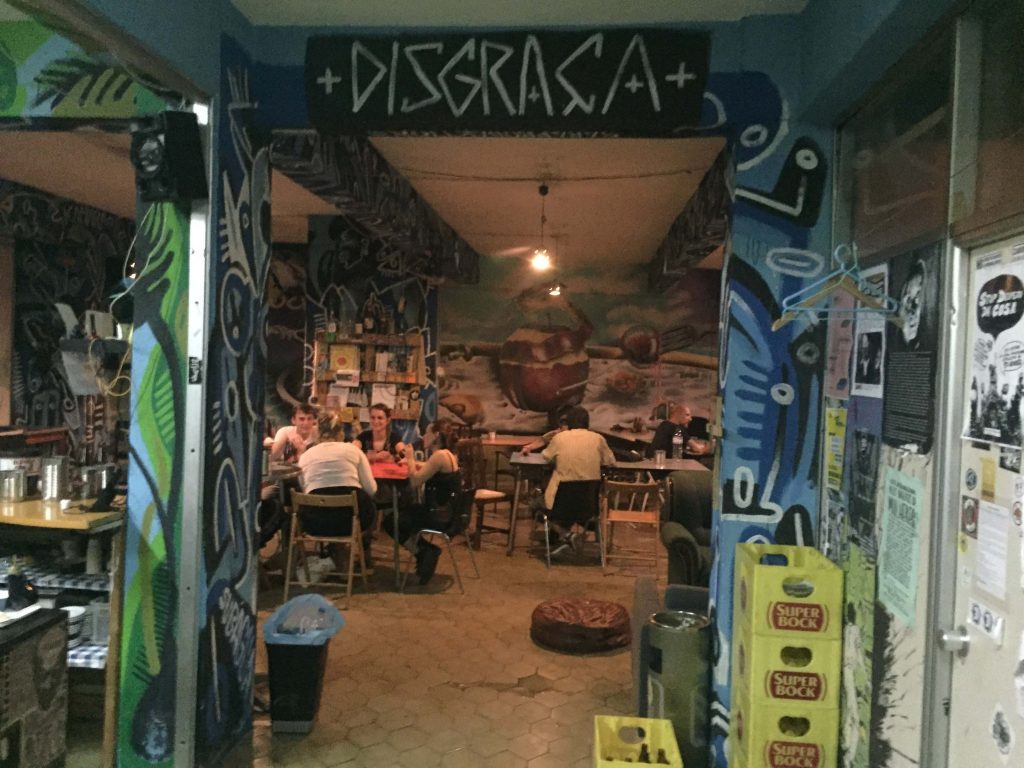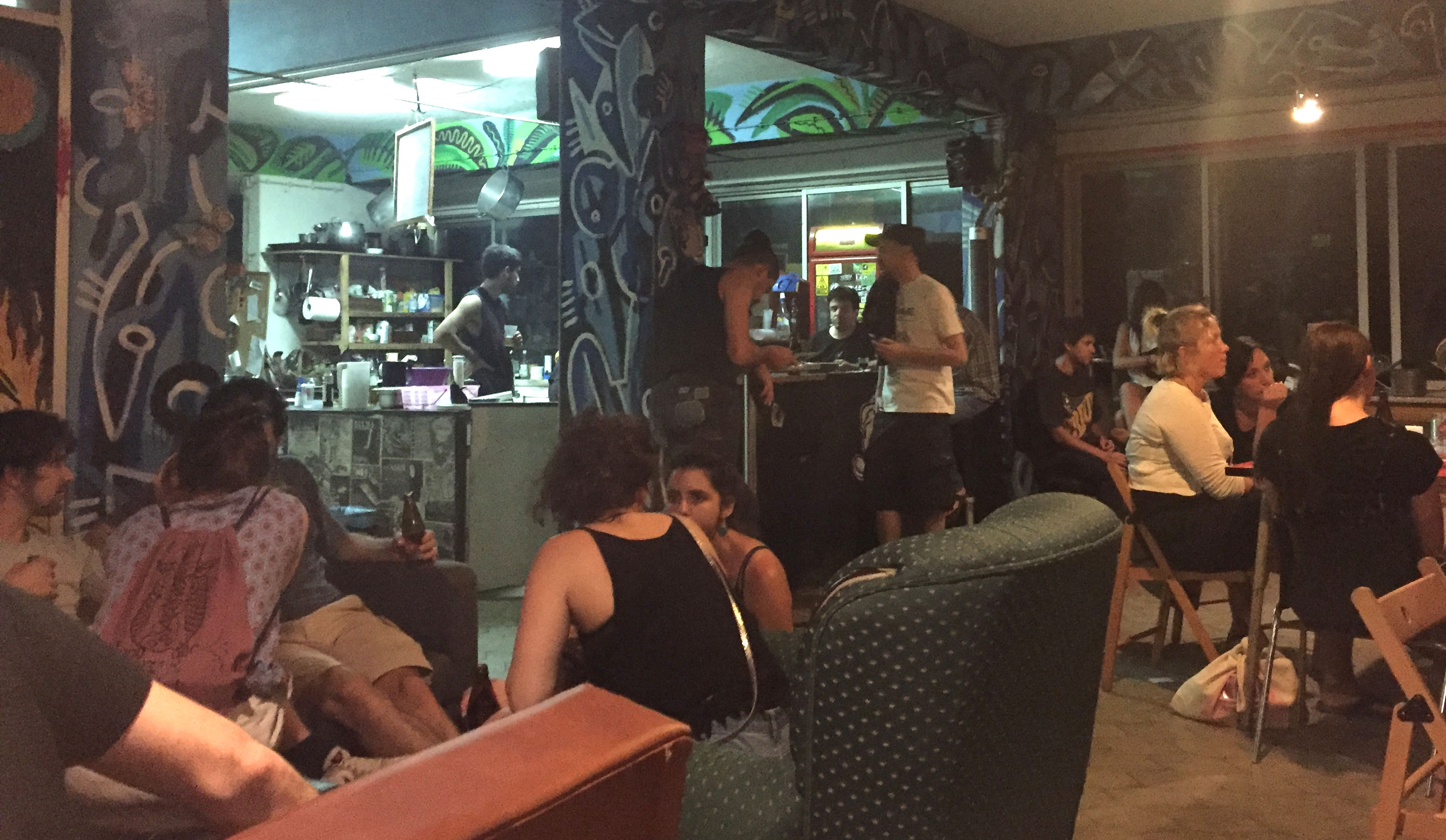“Disgraca” is Lisbon’s best place for live music under the radar. It is also a great place for a beer, a chat and a meal off the common tourist trails.
Every city should have a place like “Disgraca”. Fun and sweaty music in the basement, affordable drinks and vegan food in the kitchen, movie nights, exhibitions and a library to catch a book or two. But it is harder and harder to keep such non-commercial DIY-spaces running these days. But “Disgraca” shows how important they are for artistic diversity and social interaction within a city.

Two years ago a bunch of friends renovated and opened up this former warehouse with four flours to organise shows and offer a space for social debate. Music wise a wide range of bands take the stage at “Disgraca”. Well-known US-punk bands like Leftöver Crack played here as well as noise experimental acts like Bay Rotty or stoner bands like Oddhums. You get to choose how much you would like to pay for the show (usually between 3 and 7 Euros) and it might happen that the guy who pressed the entry stamp on your left arm will scream his lungs out a few minutes later on stage with his band.
In the library you find the “classics” like books by Noam Chomsky as well as local zines dealing with gentrification and rising rents in Lisbon. And yes, you will also meet the mandatory “punk dog” sitting around here and there. “Disgraca” is not a squad, but and independently run space by a group of people who were looking for an alternative to the cultural venues in Lisbon.
With a few Euros you might discover great unknown bands, dance or drink the night away and get to know some locals telling you their story of the city.
Off the tourist trails: Disgraca
The city: Lisbon
Portugal’s capital has moved up the ladder of places to be very fast in the last couple of years. CNN even asks if Lisbon is the coolest capital in Europe. And there are good reasons for that: The city with a rather small population of 550,000 has a unique charm with old neighborhoods, good food, lots of sun, art and bars. Compared to places like London, Paris or Copenhagen the city is cheap and less stressful. Hit by the financial crisis Lisbon has worked itself out of hardship with start-ups, small businesses, restaurants, shops and tourist programmes popping up almost on a daily basis. Slowly young educated people who have left the city and moved abroad during the crisis in search for work are coming back to Lisbon.
But along with the upswing came gentrification, reals estate investors, rising rents, precarious working conditions and a city development that seems more interested in tourists than the local population. Bairro Alto and Alfama are good examples for this development. But despite the packed tram line number 28, many Airbnb apartments, cheap bars and crowded viewing points in the city there are also alternative ways to explore Lisbon. A good example is the “We Hate Tourism Tours” offering a different insight into the city. And this is just the beginning of a conversation about the direction of Portugal’s capital. Representative for this conversation is also a recent neighborhood development project in the district of Mouraria asking the question of how to find the right balance between tourism and the needs of the local population.
The country: Portugal
Portugal with a population of about 10 million was one of the European countries hit the hardest by the financial crisis of 2008. But due to controversial political reforms and a focus on tourism Portugal is considered to have mastered the crisis rather well. Still: According to the Lisbon-based Emigration Observatory, Portugal ranks second after Malta among the European countries losing more population to emigration. An average of 110,000 Portuguese per year have left the country between 2013 and 2015. A the same time Portugal experiences a huge increase of foreign tourists. In 2016 the record number of 11.4 million tourists stayed in Portuguese hotels.
